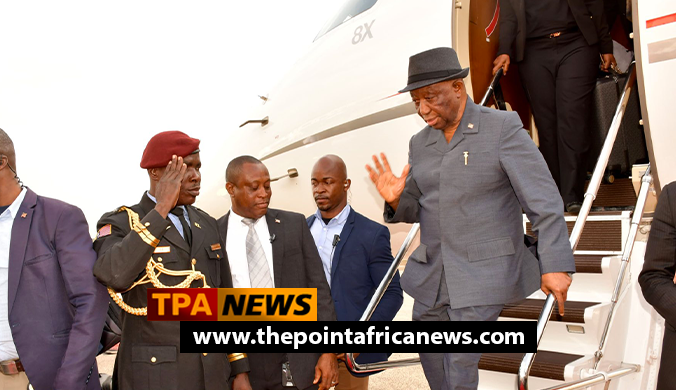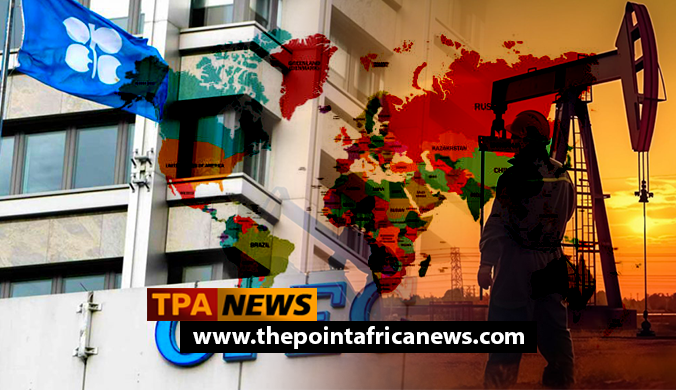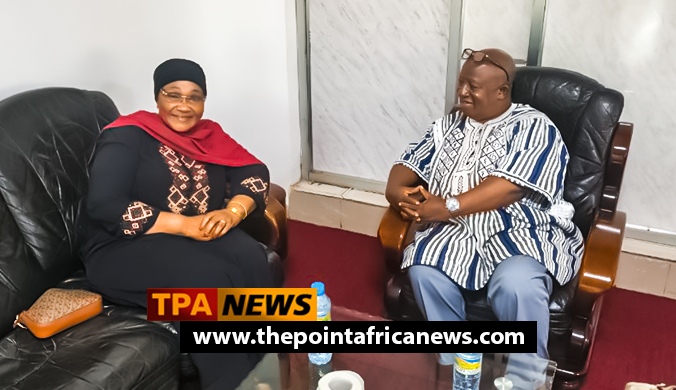By: TPA News Desk | editor@thepointafricanews.com | Monrovia, Liberia

As President Joseph Nyuma Boakai concludes his first eighteen months in office, his administration faces mounting scrutiny, with a significant segment of the populace perceiving a growing gap between his campaign promises of economic revitalization and the harsh realities of daily life in Liberia. This intensifying public sentiment is culminating in a planned nationwide protest on July 17, underscoring critical questions about governance and the nation’s economic trajectory.
President Boakai, whose extensive political career and pledges of austerity once ignited widespread hope, ascended to power with a strong mandate for change. He passionately vowed to usher in an era of fiscal prudence, famously declaring a willingness to ride “even a wheelbarrow to work” to symbolize a departure from past governmental excesses and a profound commitment to the welfare of ordinary Liberians.
However, a long-standing controversy surrounding the acquisition of multiple luxury Lexus vehicles for the presidential fleet, alongside the subsequent inspection of high-end police escort motorcycles, continues to cast a substantial shadow. These significant expenditures, a point of public contention for some time, are widely viewed as a stark contradiction to the President’s core promises. For many Liberians grappling with persistent economic hardship, this visible display of executive comfort remains a potent symbol of perceived detachment from the nation’s struggles.
Reports detailing the nation’s economic condition paint a challenging picture for the current administration. Unemployment remains a pervasive issue, particularly among the youth, hindering economic participation and fostering widespread frustration across the country. This challenge is deeply intertwined with the rising cost of living, which continues to burden households severely. Basic necessities, from staple foods to everyday household goods, demand increasingly larger portions of already strained incomes, pushing more families into precarious financial situations.
The burden on citizens is further compounded by the persistently high costs of essential services. Access to the internet, vital for commerce, education, and communication in the modern era, remains prohibitively expensive for many. Similarly, the high cost and often unreliable supply of electricity continue to impede productivity for businesses, both large and small, and drain the limited budgets of residential consumers. Furthermore, the spiraling price of gasoline, which has seen multiple increases in recent months—reaching around US$4.18 per gallon—exerts a ripple effect across all sectors, directly inflating transportation costs for goods and people and exacerbating the overall cost of living. This confluence of high prices for key commodities and services forms the core of Liberia’s current dire economic challenges.
In response to persistent public demands for accountability, the Boakai administration has pursued a strategy involving the suspension and replacement of government officials accused of misconduct or non-compliance. While these actions are presented as evidence of a commitment to anti-graft efforts, a growing number of public commentators and civil society actors critically question the ultimate effectiveness of this approach. For many, merely rotating individuals through government positions, without comprehensive investigations, transparent prosecutions, or fundamental systemic reforms, appears to be a superficial response. This strategy, they contend, risks curtailing deeper efforts to address the institutional weaknesses that enable corruption, potentially fostering a perception that such measures are more about managing public perception than genuinely eradicating pervasive graft.
Against this backdrop of unfulfilled economic promises and ongoing governance concerns, the upcoming July 17 protest emerges as a direct expression of escalating public frustration. It reflects a public sentiment that the government’s actions have yet to align with the transformative agenda it promised. While official disciplinary actions, such as those recently announced within the Liberia National Police, demonstrate some governmental response to calls for accountability, for many Liberians, the overarching question persists: do these steps truly signify a fundamental shift in the nation’s challenging economic and governance landscape? As organizers of the July 17 protest prepare to take to the streets, they are poised to publicly register their assessment of an administration whose performance, particularly in the realm of economic relief, is increasingly seen through a lens of profound disappointment. But is it all rhetoric or a matter truly needing attention?







Leave a Reply